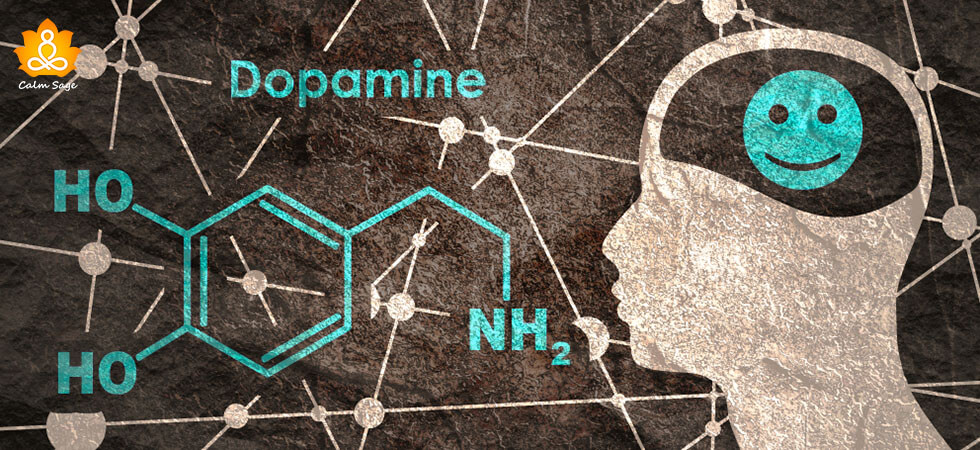The Science Behind Motivation: How Does Dopamine Help Increase Motivation

Instead of working (what you’re supposed to do), you’ve spent over an hour watching funny cat videos on YouTube or even scrolling through your Instagram feed for a new trend… sound familiar?
Have you ever wondered why this happens? I mean, it’s not your indecisiveness or poor productivity, so what is it?
Motivation. This complex and tricky thing is what or rather the lack of it causes us to wander away from our task. But how does the brain play into the art of motivation? That’s what we’re going to be exploring in this article.
But before we go deeper into the science behind motivation, let’s understand the neurochemicals behind motivation.
Where Does Motivation Come From?

“It’s all in your head” – now this sentence rings true when it comes to motivation. Normally, the neurotransmitter, dopamine, is associated with pleasure but the effects of dopamine range far greater than just bringing us instant gratification.
Yet, the link between dopamine and motivation is complicated. Dopamine impacts our enthusiasm. This chemical doesn’t just make us work for a reward but it also encourages us to seek those rewards.
Once our brains understand that our daily activities, say watching funny cat videos, lead us to feel pleasure and happiness, it will inspire us to act and seek the activity more to get the reward once more. This will cause us to experience a rise in dopamine again.
How Does Dopamine Increase Motivation?
Low levels of dopamine can make us less likely to be productive. So instead of saying that dopamine brings us satisfaction and pleasure, we can say that dopamine works overtime to inspire and encourage us before we feel the pleasure. Dopamine is not only the feel-good hormone but also the motivation hormone
Dopamine is what prompts us to watch just another episode or share one more meme. Those things are rewarding and tend to make us feel good. Low levels of dopamine can make us lose interest and pleasure in activities. However, high levels of dopamine can also be addictive.
Sure, with the help of dopamine our motivation and focus on things remain but the “high” people experience from dopamine can drive people to seek out more and more things that help them with their dopamine fix. The reward and the high related to it that our brain seeks can eventually become addictive and harmful.
Increasing Dopamine For High Motivation
Motivation happens when our dopamine levels rise because our brain keeps anticipating something exciting. The brain feeds off of dopamine caused by rewards. You create a rewarding environment, the brain does the rest.
But, how do you do that? Can you control your dopamine levels?
Don’t worry, there are some things you can try to increase your dopamine and by extension your motivation:
1. Keep Moving
Staying at your desk all day does not mean you’ll be motivated to work. In fact, the more you stay still, the less you’ll feel motivated to work. When your brain feels foggy, a quick exercise can help in increasing your dopamine.
A quick exercise at your desk or getting a cup of coffee might not help. But exercises that raise your heart rate can get you the boost of dopamine you need. Go for a walk or do a couple of jumping jacks. These kinds of aerobic exercises will not only give you a boost of the feel-good chemical but also increase your motivation.
2. Celebrate Your Wins
Positive feedback and praise from others can also help increase your dopamine levels. Recognition and appreciation from others also give us a boost of motivation. Dopamine plays a major role here too.
Appreciation and praise releases dopamine which makes us feel proud and pleasure. This kind of dopamine rush also assures us that keep working as we are will result in more praise which will give us the dopamine rush and so on. Celebrating our wins is not bragging. The next time you win or accomplish a task, celebrate!
3. Start Small
Do you get a rush when you tick off a task on your to-do list? That rush is dopamine. Now, if your reward is far away in the future, how will your dopamine increase? It can be harder to gather motivation when you know your reward is far away.
Well, the first thing you need to do is to break your major tasks into minor ones. Big projects might not seem as attainable as smaller ones may. When the reward is close you’ll find yourself getting motivated to reach the reward (and the rush of pleasure it’ll bring). So start small and when you’ll achieve the final reward, every small task will be worth it.
4. Music Helps
Are you still struggling with finding the motivation to do your task? Don’t worry, just tune up your favorite playlist. Yes! Music is also a great way to increase your dopamine and motivation. In many studies, it was found that music helps us boost our mood. Why? Because listening to our favorite music releases dopamine, the feel-good hormone.
Not only listening to music helps us feel good but it can also help increase our cognitive and emotional functioning.
Dopamine Can Be Your Superpower Too!
There are many days in our lives where finding motivation seems attainable. Such days can be frustrating and can leave us feeling unproductive. Instead, we look at other more distracting sources for that boost of dopamine such as browsing the internet.
With not more than some effort, you can hack your neurotransmitters and train your brain to increase dopamine when it comes to finding motivation. Remember, dopamine can be addictive if you don’t balance it out.
The hacks mentioned above are only a few ways you can increase your dopamine levels and get the rush you need to increase your motivation to go through your tasks. Low dopamine and too much dopamine can be unhealthy.
To read more on dopamine deficiency and how you can increase dopamine naturally, you can click here. I hope this article helped you understand the science behind motivation and how dopamine increases motivation.
Did you like this article? Think we missed anything? You can let us know your thoughts in the comments section below. You can also write to us at info@calmsage.com or follow us on social media. We’re always happy to hear from you!
Take Care!




















